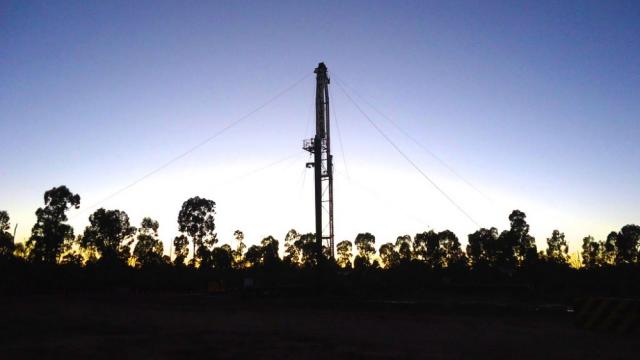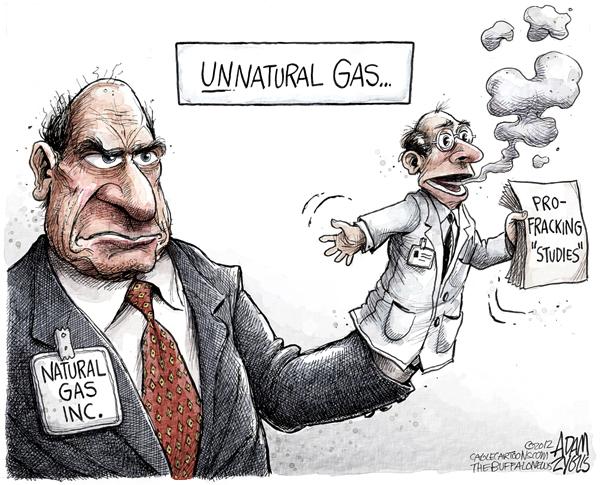
Is there any study – not sponsored by the industry – that claims fracking is safe? This is a crucial question in Britain, where fossil fuel companies are lobbying forcefully to introduce unconventional gas production in the country.
Occupy.com reported last year that the fracking industry is behind the U.K. government’s supposedly scientific case to move ahead with hydraulic fracturing.
A new report, "Frackademics," asserts in even more certain terms how the British government’s rationale to frack Britain has been based on arguments that in no way deserve to be called science. Written by Paul Mobbs, the report published last week by Talk Fracking was launched alongside a number of actions at universities coinciding with Real Media campaign's week of action against billionaire control of news and information.
Mobbs himself was purposefully arrested trying to climb into Downing Street to arrest the cabinet – a strategy by which he ensured his evidence could be presented in a court of law.
Frackademics
Talk Fracking's report categorically explains how academic independence has been lost to corporate capture. It starts by detailing the way government reforms to education have enabled corporate interests to determine the direction of what universities research – since academic institutions are increasingly reliant on funding from Big Oil and other corporations.
Big Oil funding means universities are pumping time and resources into new means to find fossil fuels, something Mobbs suggests is ludicrous since we must leave most of the known resources in the ground to prevent catastrophic climate change.
In a series of case studies, the report reveals the way the fracking industry has funded all four studies that make up the British government’s case to frack. Mobbs also invalidates the Mackey-Stone report, which suggested that fracking has a lower carbon footprint than other fossil fuels.
He notes how this piece of pro-fracking propaganda was used as a deflection from the science, just at a time when the U.K. anti-fracking movement was starting to build through the initial phases of protests at Balcombe, in southern England.
The report moves on to look at the Science Media Centre, whose purpose is to ghost write scientific information which many journalists use in their articles, taken as if it's scientific fact. Mobbs details how, in reality, the scientists quoted are in the pay of industry.
The report moves on to a Guardian letter, signed by 50 scientists, which calls on the government to get on with fracking. The "academics" are linked to the fracking industry in a flow diagram – showing us the direct pay each receives from the industry, and how the funding flows come from each fracking company via research councils before reaching the academics.
“The Centre is a scientific fraud. In reality, what this letter represents is not a reasoned statement from fifty academics – it is a public relations smokescreen,” Mobbs writes.
The Real Media Anti-Daily Mail Week
Another side to the fracking industry's PR campaign is the monopoly that billionaires have over Britain’s media. Currently, five billionaires own an estimated 70% to 80% of all U.K. media. The direct influence of this can be seen in the tabloid newspaper The Sun, which ran a petition entitled, “Get fracking to save lives and tackle global warming.” Rupert Murdoch, the owner of the paper, has investments in the fracking industry.
The lead slogan of Real Media's "Anti-Daily Mail week" campaign asserts that "billionaires control our democracy," attacking the tabloid paper owned by another billionaire, Lord Rothermere.
Each day of Anti-Daily Mail week focuses on a different theme. After starting with media billionaires, the campaign moves on to climate denial, austerity, privatization and the war machine, looking at ways all are promoted or ignored in the corporate owned press. A central message is that the billionaire media tycoons have gotten to where they are by living off the system of injustice they have perpetuated – using ownership of the media to control what news is reported, what is distorted and what goes untold so as to ensure that no critical voices threaten the economic and political status quo.
The Real Media campaign printed thousands of fake Daily Mails, which were given out for free. It created a WailOnline with positive stories of hope rather than fear. It also connected with Debt Resistance UK, which held a protest against austerity outside Goldman Sachs.
This coincided with budget day and last week's Blockupy protests against the European Central Bank. Looking forward, British media campaigns will continue next week with Occupy Rupert Murdoch – a week of action to be held at the media mogul's London Headquarters, which starts with issuing a warrant for Murdoch's arrest.
In early April, the Real Media campaign will launch an aggregating website to provide a space for people to access more critical independent journalism. Imagine: a world where the 1% doesn't have a monopoly over science and news, but where we can instead think for ourselves.
3 WAYS TO SHOW YOUR SUPPORT
- Log in to post comments












